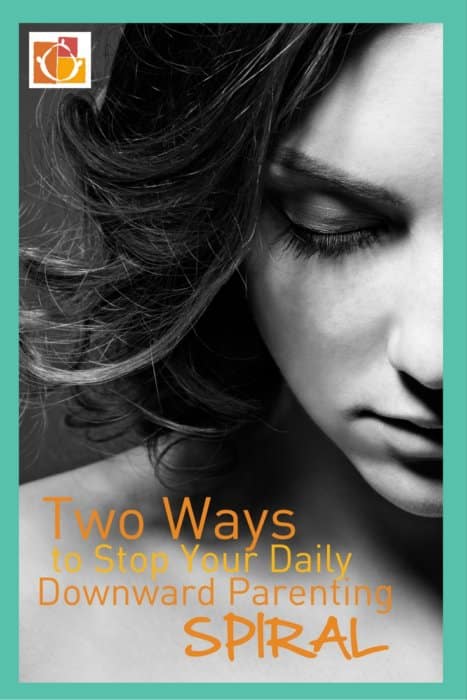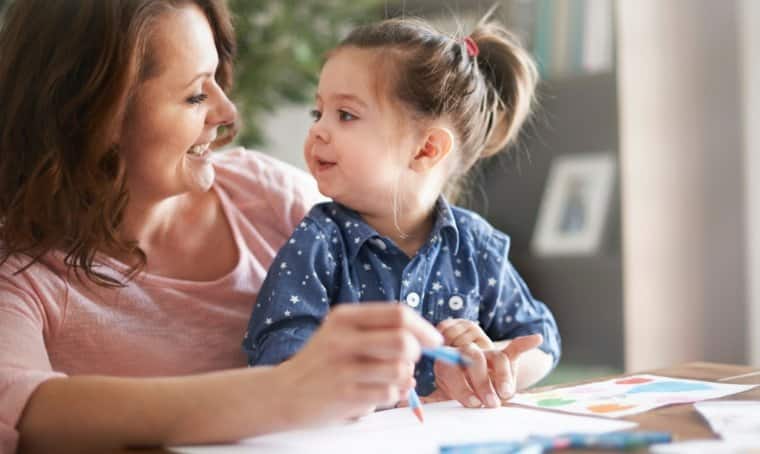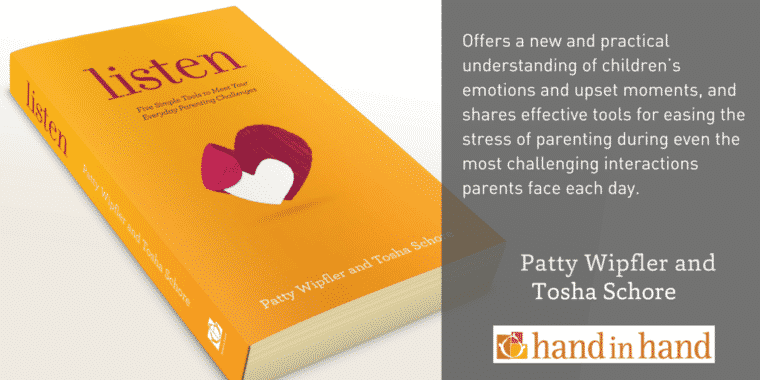![]()
The day starts off great. You wake before the alarm and find your children content with their blocks. But by breakfast, one accuses you of using the wrong color bowl while the other is crying because you cut his toast into triangles not squares. By the time you have them both dressed, one refuses to put on his shoes and the other says he won’t leave without his toy car. Typically, it's nowhere to be seen.
You dash off to find the car and then shove two feet into two shoes and frogmarch them out.
 In the car minutes later, when they both beg you to entertain them with your version of “Head, Shoulders, Knees and Toes,” sung in your “crazy” voice, you feel fury not fun, and snap at them both to be quiet.
In the car minutes later, when they both beg you to entertain them with your version of “Head, Shoulders, Knees and Toes,” sung in your “crazy” voice, you feel fury not fun, and snap at them both to be quiet.
There is a second of heavenly silence before they both start howling, and you swear at the driver that just cut in front of you.
Sinking Feeling
Once again you find yourself on a downward parenting spiral. In just a few short hours you’ve gone from happiness to anger with side helpings of frustration and annoyance. And the sad thing is, you went on a downward spiral yesterday. And the day before. And the day before that.
In fact, it’s hard to remember when you just enjoyed your kids without getting stressed.
And so you can’t help but wonder: Is this what parenting is? And if it is, was it worth signing up?
“We go through a kaleidoscope of emotions everyday,” Hand in Hand Parenting’s founder Patty Wipfler recently told talk show host Carl Thornton, Jr.
Parents’ intense feelings for their children, the everyday grind of daily life, emotional ties and pressure from society are all big contributors in this topsy-turvy whirl of emotions, she says.
“Parenting is emotional work because we love our children so much,” said Patty. “Most parents have never felt that intensity of love before their first child. They would do anything for them. It’s overwhelming.”
And because modern parents are so invested in their children having a good life, and all of a sudden, when they hit toddlerhood, and start acting out and acting like they are not having a good time, parents’ reactions are intense.
Struggles, Society, Stress
Days start out happy enough but spiral downward as a parent struggles to maintain peace and control.
Society’s expectation weighs heavily on us too, Patty said.
“The expectation that children will behave at all times is ridiculous,” she said. That children act up is natural and ok, Patty told listeners. Even if society says that it’s not.
But as parents “we need to control how we respond to all these expectations and we need to have the courage to set our own expectations.”
Worrying what others think has put parents on a push, push, push schedule that drains the fun from parenting. Daily routines like getting up, brushing teeth, getting to school, coming back home and having to get homework done further depletes a parent’s energy and enthusiasm. “They feel like they are in a rat race,” Patty said.
Racism, poverty and sexism also add to parent’s emotional load.
“We are much more relaxed parents when we are not triggered emotionally by every little thing our kids do,” she said. But long forgotten hurts remaining from a parent’s own childhood frequently get dredged up as our children grow and experience life.
 Stop the Spiral
Stop the Spiral
If there was no opportunity to process those feelings when they happened, parents emotions get triggered. They might get angry, tearful, or move away from situation.
Patty recalled the story of a mother who complained about her 14-year old daughter.
Their relationship was becoming distant. The mother felt that her daughter was mentally moving away, but when Patty asked about the mother's feelings at 14, a lightening bolt struck. She’d lost her own mother at that age and had felt bereft and alone.
While the mom experienced the distance as coming from her daughter, it was she who was projecting her unhealed feelings and creating the distance. “Her child had not changed at all,” Patty said.
Some parents may be triggered by their child starting school if they themselves had a bad experience. Others may have been told they weren’t allowed to cry as kids, and so find it agonizing to listen to their own children tantrum.
Look Back to Move Forward
In these difficult situations, Patty advises looking back. “For most parents there’s a memory there that is really stark and really hard and they are acting on that memory and kind of transmitting their fears to their child,” she says.
“That happens because no-one has listened to them, no-one asked
“What happened to you when…?”
Laughing or crying about those times as adults allows parents to process, offload, and move on.
“Once somebody really listens to you, you can offload the feelings, you can have the good cry that you needed at the time when you were a child and there was no one around to help you have it, then you can see your child’s situation more clearly,” said Patty.
Listening is at the center of both Patty's organization and new book, Listen: Five Simple Tools to Meet Your Everyday Parenting Challenges. The five tools she sets out in the book give both parents and children room to express themselves freely. The approach, known as “Hand in Hand Parenting,” developed from Patty’s own experiences early in motherhood. Now, forty years on, the tools have been used by thousands of families, in 22 countries around the globe.
One listening tool is aimed at parents and gives them the ideal space to explore their triggers. Called a Listening Partnership, it works when two parents meet or call each other and exchange time listening.
Take some Special Time
Patty also talked about a way to boost a parent’s connection with their children using a tool called Special Time. Parents make a deal to spend five-to-10 minutes of one-on-one time “pouring the warm honey of their attention on their child.”
In Special Time, parents provide “eye contact, a warm tone of voice, and physical closeness, and their child decides what to do.” Requests might range from throwing mud pies against a wall to eating peaches covered in sugar. Whatever a child wishes. “Unless it’s going to cost $500, you let the child drive,” Patty said.

When children feel connected to the adults in their lives, they have less reason to tantrum, be aggressive, clingy, or whiny, said Patty. Those behaviors are all signals of disconnection. Special Time fosters re-connection fast, and can be a fascinating way to learn more about your child.
Setting aside some time to get out of the rat race, to pay close attention to yourself and your children, puts parents much more on an even keel. Downward spirals even out.
“Once you know how to bring a child back on track, back into the circle of your attention, its so much easier than trying to tell them what to do or forcing them to do what they need to do, or to scold them,” said Patty. “And you get to get out of being in the bad guy role.”
So when you notice yourself headed for a downward spiral, stop for a minute. Climb off the “must do” pedestal that life and society forces on you. Call someone who knows how to listen and plan on some connection building with your children.
The dishes may go unwashed, but you won’t care.
You’ll be having fun throwing mud pies.
Patty Wipfler was speaking with Carl Thornton, Jr. on WTHB-AM.
From the Hand in Hand Toolbox:
- Learn how to transform your relationship with your child. Watch this free video series about Special Time
- Get your copy of Patty's book Listen: Five Simple Tools to Meet your Everyday Parenting Challenges
- Find out how Hand in Hand's Five Tools can turn your parenting around

